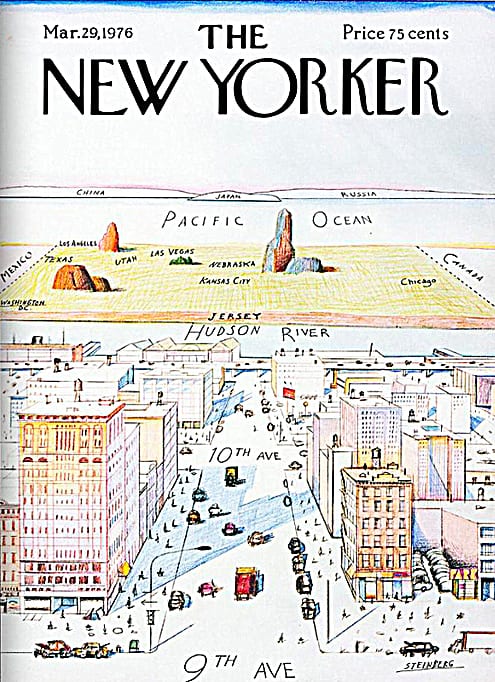EUSTACE TILLEY WEEPS: The New Yorker’s Cavalcade of Ignorance.
How honest are we about our ignorance? How honest do we want to be? In answer to that eternal question, which is—or should be—of particular interest to reporters, the 20-page, 12-essay onslaught of postelection “dispatches” that dominates the latest issue of The New Yorker is one of the most honest pieces of magazine publishing we are likely to ever see. Some of the greatest minds in America have gathered in the pages of the country’s leading weekly to declare how little they understand things now, and how little they care to understand them moving forward.
“Stunningly, Trump fared better in New York City this year than he did in 2020,” writes Jelani Cobb, which is frankly a stunning assessment coming from the dean of the Columbia Journalism School, given Trump’s marked improvement in the five boroughs in 2020 and the obvious and extensively documented rightward shift across the metro region over the past decade. “How could Americans be such nice and decent people and support someone so debasing, so deranged, so hate-filled [as Donald Trump]?” asks Adam Gopnik, who makes no attempt to answer these questions, though he clearly wants to be seen as a thoughtful person for asking them.
The New Yorker drew together some of its highest-end chroniclers of the American zeitgeist, who then reveled proudly in their own attachments to in-group biases and cliches. They celebrated a kind of communion with their suffering readership, who found comfort in the certainties these writers gave them. This communion is grounded in ignorance. “I was alarmed by the number of white men who had shown up to vote,” the short story writer Lorrie Moore recalls of her polling place, refusing to interrogate her alarm. Pulitzer Prize-winning author Jennifer Egan introduces us to two Trump voters she met while door-knocking for Kamala Harris in Allentown, Pennsylvania, but they turn out to be a racist and a loner, exactly the types of people we needn’t trouble ourselves over.
By contrast, almost, Kelefa Sanneh nearly achieves a self-critical reckoning with Trump’s victory. “[A]s far as we can tell, Trump’s America is a place that is more polarized by education than it used to be and less polarized by whiteness and non-whiteness—by race, properly understood.” This casual, less-than-earth-shaking observation upends a decade of opposition dogma about Trump and his supporters, a party line that The New Yorker has held with monotonous discipline. But for now, Sanneh’s “as far as we can tell” must take the place of any actual engagement with the views and priorities of any Trump voter of any background, which barely appear across tens of thousands of words from the crème de la crème of The New Yorker. The 76.7 million Americans of all races and creeds and education-levels who vaulted the president-elect to a 86-vote victory in the Electoral College appear only as concepts and caricatures to them.
To be fair, maintaining that level of intellectual ignorance is a proud tradition at the New Yorker:

